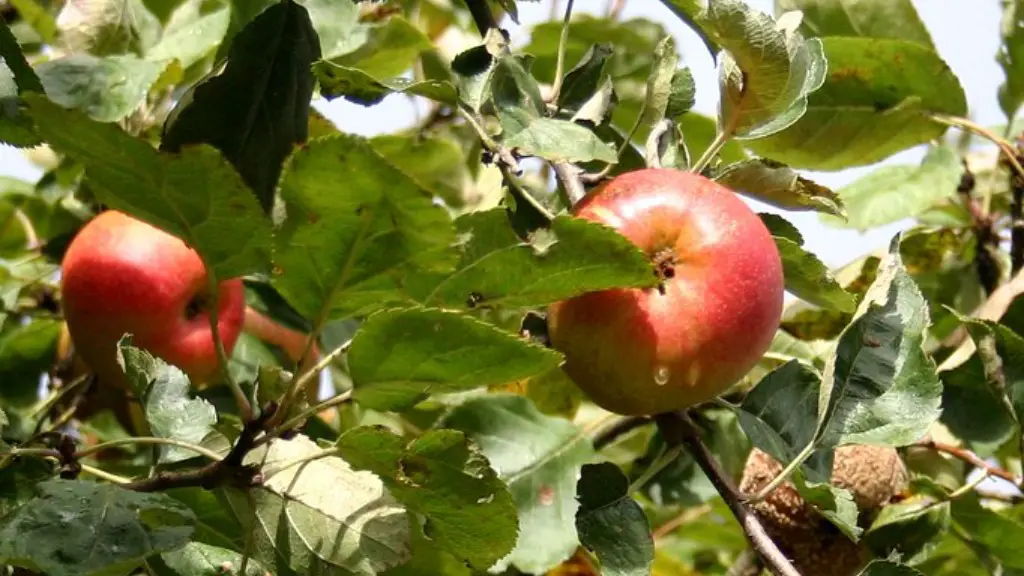Avocados are one of the most popular fruits in the world today. They are hearty and creamy, packed with vitamins and minerals, and endlessly versatile in the kitchen. Unfortunately, they can be expensive to buy, and many people don’t know that they can grow an avocado tree at home and have a ready supply of delicious avocados. But will one avocado tree produce fruit?
Avocados are a type of spring-flowering, evergreen tree. They typically need a warm climate and a lot of sunshine to grow, so they don’t do well in northern climates. Avocado trees typically take between 4 and 13 years to begin producing fruit, but once they start, the trees can bear fruit for over 100 years. That means if you are patient, and you give your tree enough love, one avocado tree can indeed produce fruit. But there are some things you’ll need to know about how to care for an avocado tree in order to get plenty of fruit.
Start by planting an “A” type avocado, which is a variety known for its year-round production. You’ll want to make sure you are planting in a spot that gets plenty of sunshine and is sheltered from cold weather. If you live in a place with hot summers, you may want to provide some afternoon shade in order to avoid scorch. Avocado trees should also be planted in soil that is well-drained and has plenty of organic material. And make sure to choose a container and a soil that is appropriate for the size and variety of your tree.
Your tree needs a lot of water. While you may be used to most trees needing regular watering in the summertime, avocado trees are an exception. They actually benefit from regular water all year long—several times per week in summer and at least once a week in winter. This is especially important for any young trees. In addition to watering, your avocado tree will benefit from regular fertilizer with a balanced formula of nitrogen, phosphorus, and calcium.
The next thing to consider is pollination. Most avocado varieties are of the “A” type, which means that the trees are self-pollinating. This means you don’t need to plant a second tree for the tree to bear fruit. However, if you want even more avocados, you’ll want to plant a “B” type variety of avocado tree to ensure your tree gets plenty of pollen. Also, since bees are the primary pollinators of avocados, making sure you have a bee-friendly garden will greatly increase your chances of getting plenty of fruit.
Finally, you should be aware of the common pests and diseases that can affect avocado trees. Two of the most common are root rot and aphids, which can cause leaves to turn yellow and the fruit to be smaller and underdeveloped. Horticultural oil or horticultural soap can help to get rid of these pests. Keeping a look out for any signs of disease or infestation, and tending to them right away, will help to ensure a healthy, productive avocado tree.
Facts and Figures
According to the California Avocado Commission, California produced 95 percent of the avocados grown in the U.S. in 2015, and 83 million pounds of avocados were harvested that year. Over 45,000 acres of land is devoted to the farming of avocados in California. The average tree can produce around 200-400 avocados a season. While sizes vary, the average avocado weighs somewhere between 6 and 12 ounces.
Growth and Maturation
Avocado trees take some time to grow and reach maturity—anywhere from 4-13 years depending on the type of tree planted and the climate. The avocado season usually lasts from late winter to late summer, and then the tree will go through a period of dormacy and rest. During this time, it’s important to keep an eye on the tree and make sure it’s still getting the water and nutrients it needs. Once the tree is mature and producing fruit, it should start producing new fruit each year.
Harvesting Avocados
The fruit should be ripe and ready to harvest when it falls off the tree naturally. To test for ripeness, you can gently shake the tree and see if the fruit falls off. The more mature avocados will have a bumpy texture and the skin should be green and slightly soft to the touch. Once they are ripe, they should be picked promptly, as avocados do not ripen further off the tree. If you’re looking to store them for longer, unripe avocados can be picked, wrapped in newspaper, and stored in a cool, dry place until ripe.
Preserving Avocados
Once harvested, avocados don’t last very long unless properly preserved. Ripe avocados can be frozen, pureed, and stored in air-tight containers to be used in guacamole and other dishes. Unripe avocados can be kept in the refrigerator for up to a week, or they can be cut and the flesh sprinkled with lemon juice or vinegar and wrapped tightly with plastic wrap or foil and stored in the refrigerator until ready to be used.
Nutritional Benefits
Avocados are packed with nutrition. They are an excellent source of vitamins E, B6, B9, and K and minerals such as potassium, magnesium, and iron. Additionally, avocados are rich in fiber and healthy monounsaturated fats, making them a heart-healthy choice. One cup of diced avocado clocks in at only 234 calories, making them a wonderfully guilt-free treat.
Cooking with Avocados
Avocados are incredibly versatile in the kitchen. They can be mashed, diced, sliced, and pureed. They can be added to salads, sandwiches, and smoothies. They can be blended with yogurt or buttermilk to make a creamy, luscious dip. Avocado oil can also be used in place of traditional cooking oil and dressings. The possibilities are limited only by your imagination.
Health Benefits
Avocados are incredibly healthy and nutritious. The combination of essential vitamins and minerals make them an excellent source of dietary fiber, and their healthy fats help to reduce bad cholesterol and control blood sugar levels. Further, the high levels of antioxidants in avocados help to reduce inflammation and support healthy skin and bones.
Environmental Benefits
Avocados are also good for the environment. They are a great way to reduce waste and carbon emissions. They don’t need a lot of water to grow, and their long-term production of fruit helps reduce carbon emissions by replacing transport-heavy, imported produce. Growing your own avocado tree is also a great way to create a bee-friendly environment, which helps to boost pollination.
Fun Facts
Avocados are interesting fruits with a lot of fun facts. For instance, did you know that Americans eat 80 million pounds of avocados on Super Bowl Sunday? Or that the heaviest avocado ever recorded was 5.23 pounds? Avocados also contain more potassium than bananas, and the ancient Mayans believed that avocados were so full of fertility that newlyweds were given avocados on their wedding day.


